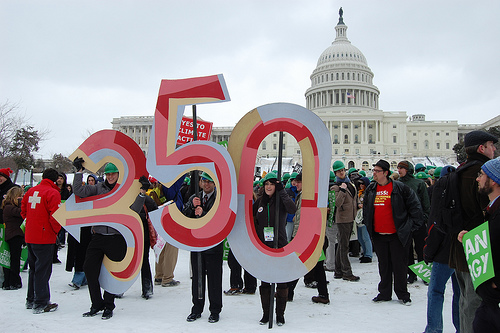Articles by Eban Goodstein
Eban Goodstein is the director of the Bard Center for Environmental Policy and Bard's new MBA in Sustainability in NYC. In recent years, Goodstein has coordinated educational events at over 2,500 colleges, universities, high schools, and other institutions across the country. Goodstein is the author of a college textbook, Economics and the Environment, (John Wiley and Sons: 2007), as well as The Trade-off Myth: Fact and Fiction about Jobs and the Environment. (Island Press: 1999). His most recent book is Fighting for Love in the Century of Extinction: How Passion and Politics Can Stop Global Warming (University Press of New England: 2007).
All Articles
-
New year, new idea for climate: the American Clean Energy party
Last year, the U.S. failed to act on climate, and the victory of dozens of Tea Party Republicans in November eliminated any prospect for serious action for at least the next three years. Barring future technological or political miracles, we have now blown by the chance we had to stabilize the planet at 450 parts ppm of CO2. Yet it is not "too late" for action. How can we build a powerful clean energy majority in Washington, a stronger majority than the one that didn't get the job done in 2010?
-
Climate realism: too late for what?
The elections earlier this month saw the breaching of the 2016 deadline set by NASA's Jim Hansen for global CO2 stabilization, and also moved us well beyond IPCC Chair Rajendra Pauchuari's statement that action beyond 2012 "will be too late". So where does this leave us? For what are we now, officially, too late?
-
California's landmark climate law: Job killer or creator?
Proposition 23 proponents claim AB 32 will kill jobs and California should wait until unemployment rates drops to 5.5 percent. Is there truth to that?
-
The economics of 350
There is good news on the climate policy front. The Europeans have ratcheted down their emission targets; the Chinese are getting serious about solar power and energy efficiency; and Washington, after opening a multi-billion dollar stimulus spicket for clean energy, is lumbering towards a carbon cap. This is progress-inadequate, but still important progress — towards […]



